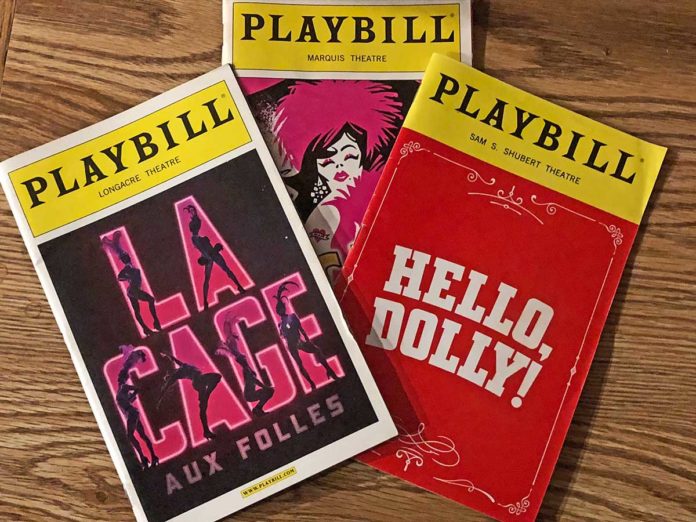The past six months have been hell for us LGBTQ theatre lovers.
At a time when there don’t seem to be any constants to depend on, LGBTQ theatre has been dealt the blow of losing not one, not two, not even three, but a staggering total of four iconic gay theatre practitioners in the past six months.
First, Jerry Herman, the mind behind the music and lyrics of the 1983 seminal Broadway classic “La Cage aux Folles,” passed away last December.
Then, Mart Crowley, the man who unapologetically depicted the lives of gay men in the groundbreaking 1968 play “The Boys in the Band,” passed away in early March.
In late March, Terrence McNally, a playwright who arguably contributed more works to the gay theatre canon than anyone else, passed away of COVID-19 complications.
And most recently, Larry Kramer, the indomitable activist/playwright who wrote the groundbreaking 1985 play “The Normal Heart,” passed away on May 27.
Each of the major works by these men changed theatre and the LGBTQ rights movement for the better.
The impact that “La Cage aux Folles” had on normalizing same-sex relationships at a time in the early 1980s when the country was at the height of Reaganism cannot be understated.
“The Boys in the Band” was one of the first major plays to openly explore what it means to be gay, and it showed audiences that gay people aren’t villains, but are complex individuals who have the same hopes and dreams as their heterosexual counterparts.
“Love! Valour! Compassion!,” Mcnally’s 1994 play, is the embodiment of all three words of the title. At a time when the HIV/AIDS epidemic was still raging, the play depicted a group of eight gay friends in a truly compassionate light.
And “The Normal Heart” loudly called for action while the president was still refusing to utter the word AIDS.
Despite the fact that all four were undoubtedly 20th century writers and hadn’t pushed forward the cultural dialogue in quite some time, their major works seem to be just as relevant now as they were when they were first staged. “La Cage aux Folles” has never gone out of fashion and is still produced all across the globe, including in unlikely places like rural Appalachian playhouses. The Ryan Murphy produced and Joe Mantello directed remake of “The Boys in the Band” is due out later this year on Netflix. Just last year, McNally was the subject of a PBS documentary and the recipient of a Special Tony Award for Lifetime Achievement. In 2014, Murphy directed an HBO film version of “The Normal Heart” that won the Outstanding Television Movie Primetime Emmy Award.
I only mentioned one major work by each writer, but it’s important to note that they also contributed to theatre and the LGBTQ community through their many other works, especially McNally with 1975’s “The Ritz,” and 1998’s “Corpus Christi” and Kramer with 1992’s “The Destiny of Me.”
With the passing of these four icons, I can’t help but wonder where the LGBTQ theatre world will go from here. Perhaps in a more diverse direction? Although there are working lesbian, bisexual, and transgender playwrights out there at the moment, none have quite managed to imprint their genius on the culture the way Herman, Crowley, McNally, and Kramer did. Given the fact that all four were cisgender white men, it was likely easier for them to get plays about cisgender gay white men produced than it would have been for a queer person of color to get something produced. Hopefully given time, society will continue to uplift younger LGBTQ voices like gay black playwright Michael R. Jackson, lesbian playwright Madeleine George, and genderqueer playwright Taylor Mac.
While it’s exciting to think that the future of LGBTQ theatre is going to be more diverse, the many contributions that Herman, Crowley, McNally, and Kramer made to theatre and society should not be forgotten. Without the advocacy that each did through their work, I doubt the community would enjoy as many rights as it does today.
On a personal note, as a young theatre major I feared that my trans identity and passion for theatre were in conflict. It wasn’t until I found the works of these four men that I realized that advocacy and theatre have had a long and successful history together. Although they are no longer with us, I will forever be grateful to each and every one of these men.

